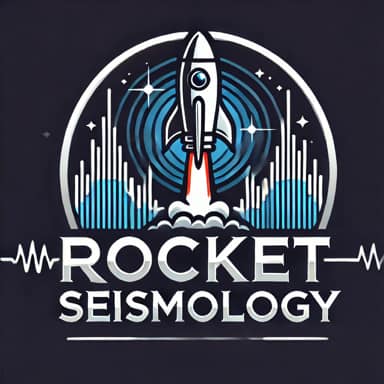
© Glenn Thompson, 2025

Rocket Seismology is an emerging field that focuses on detecting and analyzing seismic and infrasound signals generated by rocket launches. These signals are produced by the immense energy released during liftoff, and they provide valuable insights into both the dynamics of rocket propulsion and the surrounding geological environment. At Kennedy Space Center (KSC), since 2016, various rocket events—such as SpaceX Falcon 9 launches, NASA’s Space Launch System (SLS), and commercial missions—have been extensively monitored for both seismic and infrasound waves.
In addition to tracking the impact of rocket launches on the environment, rocket seismic signals are also used to probe subsurface geological structures. By analyzing the way seismic waves travel through the Earth, researchers can map and study the geological features beneath KSC and nearby regions, including aquifers and fault lines. Infrasound signals, which are low-frequency sound waves generated by rocket engines, are also recorded and analyzed to provide complementary data on the rocket's behavior and atmospheric interactions.
 |
ROCKETCAT: The Seismo-Acoustic Rocket Event Catalog
© Glenn Thompson, 2025 |